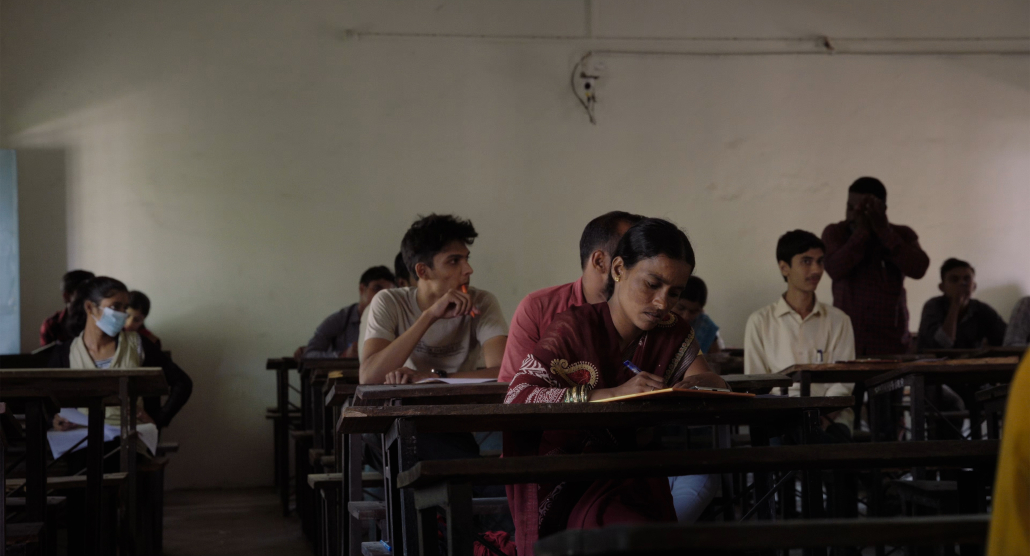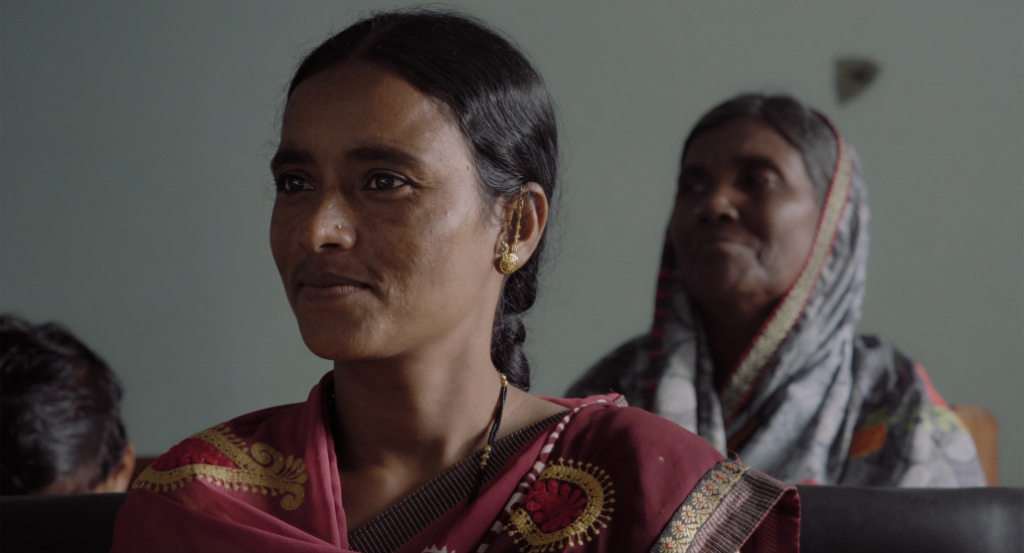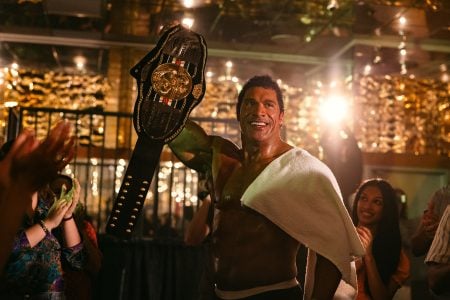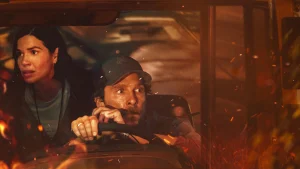The more films I watch from different parts of the world, the fewer cultural differences I discover. A documentary about a small village in India may feel familiar when language and other cultural barriers are pushed aside.
Poverty looks the same wherever we go. It’s a gnawing grip on sanity, mental health, intellectualism, and every aspect of daily life. Poverty dictates human-human interactions and self-image. In Kinshuk Surjan’s Marching in the Dark, suicide is a masquerade of poverty.
The documentary follows our female protagonist, Sanjivani, sneaking out of the house to meet up with other women, discussing their husbands’ suicides, and the effect the events had on their lives. Women share stories about their dead husbands and how it feels to be the ones left behind, making sense of the mess and the aftermath.
In one beautiful scene, the mother Sanjivani asks her son to get a thorn out of the sole of her foot. We watch slowly as the kid works on his mother’s foot with a safety pin as he playfully enjoys playing the adult role with her, enjoying her discomfort as an adult seeking relief from her child. In another, a woman in group therapy asks the moderator why women don’t die by suicide. The camera lingers on the women’s faces as they try to gather their strength, ooze collective reinforcing energy, and support one another, as they each recount their spontaneous answers as if finding solace in the words spoken – the reassurances passed around.

Surjan’s camera lingers on the subjects, it is not too close but not too far. He allows them to exist and sympathizes with their awkwardness and inability to connect with their surrounding environment, despite being sewn into it. He carefully frames Sanjivani with the utmost gentleness without missing a trace of how her skin shows the marks of time, how her eyes wander in sadness to an uncertain future. How her shy, modest smiles and fleeting grins light the screen, even though they rarely show on her face, hardened by harsh work and experience.
As I watch Marching in the Dark I think of all the times I have watched an international film and marveled at the resilience of the human spirit. Reading the subtitles has been a rewarding experience, as I sometimes close my eyes and try to taste the words coming from people’s mouths in a language I don’t know. How cinema brings closer what politics and geographical borders have successfully separated people and fueled their prejudices, differences, and supremacies. A woman comes to terms with her husband’s suicide in a rushed environment. She reckons with how it’s on her shoulders to hold the family together without grasping the intensity of what trauma means. But still, her survival instincts push her forward to find other ways to persevere and understand.
This documentary belongs to a subgenre known as cinema of humanity, and it is our duty as critics to nurture filmmakers who seek answers on a rocky road, a bumpy terrain to the truth, unabashed and unfiltered.
Marching In The Dark had its North American Premiere at Hot Docs 2024 in the World Showcase section.
Director: Kinshuk Surjan
Rated: NR
Runtime: 105m
As I watch Marching in the Dark I think of all the times I have watched an international film and marveled at the resilience of the human spirit. Reading the subtitles has been a rewarding experience, as I sometimes close my eyes and try to taste the words coming from people’s mouths in a language I don’t know.
-
GVN Rating 7.5
-
User Ratings (0 Votes)
0
Jaylan Salah Salman is an Egyptian poet, translator, and film critic for InSession Film, Geek Vibes Nation, and Moviejawn. She has published two poetry collections and translated fourteen books for International Languages House publishing company. She began her first web series on YouTube, “The JayDays,” where she comments on films and other daily life antics. On her free days, she searches for recipes to cook while reviewing movies.






